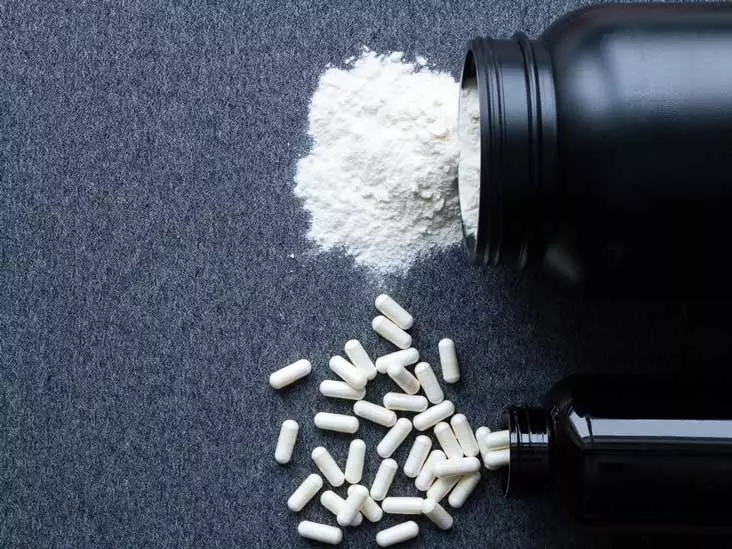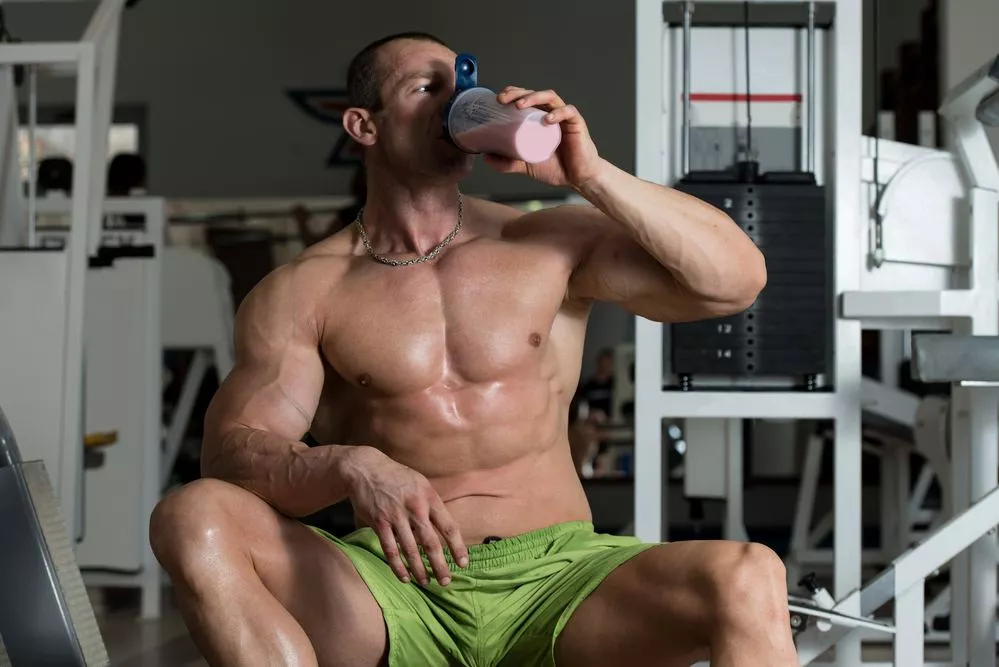Let’s be honest, who doesn’t want a lightning-fast metabolism and muscles that pop? With the rise of social media and “fitspiration” blogs, it seems everyone is obsessed with boosting their metabolism and getting ripped. Creatine has been shown to have beneficial effects on performance, body composition, and even cognitive function in certain populations.
Protein is the most well-known supplement for increasing muscle mass and strength; however, it can also support energy expenditure by increasing metabolic rate. Protein Vs. Creatine Both of these supplements are important for specific reasons, which we will explore in this article. Here are some key differences between protein and creatine as well as when each might be best for you.
What is Creatine?

Creatine is one of the most studied supplements in fitness, and it has been shown to have benefits in a variety of populations. Creatine is an amino acid that can be produced in your body or taken as a dietary supplement. It is found in foods such as fish, beef, and poultry, but for most people, dietary sources are not enough to meet the needs for high-intensity exercise.
Like many supplements, creatine was first discovered in a lab setting through observations of how people respond to certain substances. It was noticed that people who exercised intensely and regularly had higher levels of a substance called creatine in their blood. Researchers then determined that this substance might be responsible for the stronger muscles that athletes have compared to people who don’t exercise.
👉 Also Check: 9+ Best Creatine Pills to Accelerate Muscle Growth
What is Protein?

Protein is often associated with building muscle and strength. This is because protein is the main building block of muscle tissue. When you eat protein, your body breaks it down into amino acids and uses these to build muscle and replace damaged tissue. Protein is also used for a variety of other bodily functions, including supporting immune function and metabolic rate.
Protein can be found in almost all types of food but is found in particularly high quantities in meat, fish, eggs, soybeans, and legumes. Protein supplements are often used by athletes and other people who are engaging in intense exercise. This is because, after exercise, the body breaks down muscle tissue in order to replace it with stronger tissue over time. Protein supplements can help the body replace this tissue faster and more efficiently.
When to Take Creatine?

Creatine can be taken at any time but is particularly useful to take before and after a workout. Taking creatine before a workout can help increase the amount of energy available to your muscles, while taking it after a workout helps speed up the recovery process. While muscle growth is a long and gradual process, the speed at which your body replaces damaged muscle can vary.
There are certain times when your body will break down muscle tissue more quickly, such as when you are injured, sick, or engaging in particularly strenuous exercise. Taking creatine during these times can help your body replace the damaged muscle more quickly so you can get back to doing what you love.
When to Take Protein?

Protein is best taken throughout the day at regular intervals. Protein supplements can be taken at any time but are particularly useful in situations when you do not have the time or availability to eat a full meal. Protein supplements can be particularly useful for athletes and people who regularly practice high-intensity exercise. These people may have irregular eating patterns or may not have the time to sit down for a full meal before or after a workout.
Protein supplements are also useful for people who are dieting, as they can potentially increase metabolic rate and help people lose weight. People who are engaging in strength training may also want to take protein supplements, as they are helpful in the repair and replacement of damaged tissue.
Why Takes Protein?

As mentioned above, protein is the building block of muscle and, therefore, crucial to building muscle mass. Protein supplements are also a convenient source of protein for people who may not regularly eat protein-rich foods. Another important function of protein is that it increases metabolic rate via energy expenditure.
Protein is broken down in the body and produces energy, and people who take in more protein than they need are able to metabolize it into energy more quickly than those who don’t take in enough protein.
This means that people who take in enough protein will have a higher metabolic rate than those who don’t. This can be helpful for dieters, who may want to increase their metabolic rate, so they burn more fat. Protein supplements can also help dieters by keeping them feeling fuller for longer, which can help them stay on track during a diet.
Why Takes Creatine?

Creatine supplements are helpful for building muscle mass, particularly when combined with resistance training. Creatine is a substance that is naturally produced in your body, but it can also be obtained from dietary sources or taken as a supplement. Creatine is used to create cellular energy and is found in high quantities in muscle tissues, particularly in Type II muscle fibers, which are the type of fibers used during high-intensity exercise.
During exercise, your body uses up a lot of cellular energy, and it can be helpful to have a supplementary source of energy to draw from. Some people have naturally higher levels of creatine in their bodies, and others can increase their levels by taking creatine supplements. Taking creatine supplements can help you have an easier time completing high-intensity exercises and can also help you recover from workouts more quickly.
What is the Difference Between Protein and Creatine?
Protein and creatine are both important supplements that can be helpful for certain populations. Protein is important to help you build muscle and recover more quickly from strenuous exercise, while creatine is helpful in increasing cellular energy and replacing damaged muscle tissue more quickly.
Protein supplements can be taken at any time and are particularly useful when you are dieting or engaging in strenuous exercise. Creatine supplements are most beneficial when taken before and after a workout.
How to Combine these Supplements Together?
Many people who supplement with Protein and creatine do so because they want to achieve the desired effect, such as building muscle or losing weight. These are both worthwhile goals, but there is a potential risk when combining these supplements. When you take Protein Vs Creatine together, your body may have a harder time processing them correctly.
This can lead to a waste of supplements or even health problems. It is important to take these supplements separately so that your body has the ability to metabolize them properly and get the benefits from each.
FAQ related to Protein Vs. Creatine
Why is creatine better than protein?
Protein and creatine are both essential supplements. Creatine boosts exercise performance by giving your built muscles more energy. It also holds water within your muscles, making them appear more prominent. In contrast, protein provides the importance of amino acids your muscles need to bulk up & recover after a workout.
Does creatine have harmful side effects?
Creatine is possibly safe when taken long period. And also doses of up to 10 grams daily for up to 5 years have been safe to use. Side effects might include dehydration, upset stomach, and muscle cramps.
What are the side effects of protein?
Side effects of protein are:
1. Intestinal discomfort and indigestion
2. Dehydration
3. Unexplained exhaustion
4. Nausea
5. Irritability
6. Headache
7. Diarrhea
How much do you need protein a day?
A sedentary adult should consume 0.8 grams of protein per kilogram of body weight, or 0.36 grams per pound. That means the sedentary man should eat about 56 grams of protein per day, and the average woman should eat about 46 grams.
Who should not take creatine?
Creatine isn’t recommended for people with kidney and liver disease or diabetes. Others who should avoid taking it are children under age 18, pregnant women, and nursing.
Final Words: Protein Vs. Creatine 2023 – Which is best for your fitness goals?
If you’re looking for a quick and easy way to get into shape, Protein and creatine are two supplements that you need to know about. Protein Vs. Creatine; Both can be very beneficial for boosting your workout performance and helping you recover from exercise more quickly. If you’re more interested in building muscle than staying energized during your workout, or if you simply want to lose weight, then you should definitely take a look at these supplements.
Protein supplements are typically used by people who want to build strength and endurance in the gym or if they’re simply trying to lose weight and stay energized throughout their workout. This is because protein is an essential building block of muscles.
To make protein more effective, you need to supplement with BCAA’s, which are also important for helping your body retain muscle. While there are many different types of protein supplements, whey protein is one of the most popular and most effective.
Creatine supplements are typically used by athletes, as well as those who engage in high-intensity exercise. Creatine helps you perform exercises more effectively and can also help speed up your recovery time after exercise. When deciding which supplements to take, you have to keep in mind that the best time to take them is before and after your workout. Both of these are great supplements that can have a direct impact on your workout performance, as well as your overall health.






